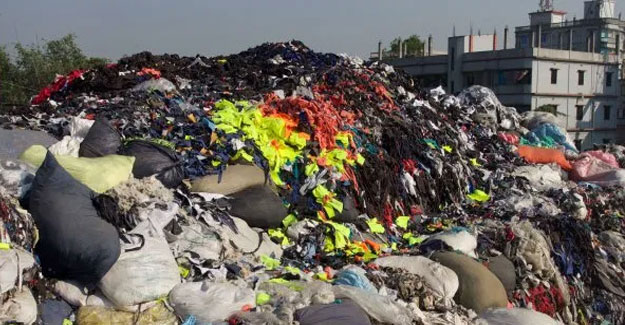
WRAP Funds £1.5 Million For Projects Fighting Textile Waste
The Waste and Resources Action Programme (WRAP) has relaunched its grant fund of £1.5 million for "imaginative projects" intending to tackle barriers to textile recycling and reuse. The Textiles Project Grant Fund is drawn from the £18-million Resource Action Fund, provided by the Department for Environment, Food and Rural Affairs (Defra) to support resource efficiency projects, such as the Covid-19 Emergency Surplus Food Grant, which sets out to fight food waste by facilitating its redistribution. It intends to support projects that prevent textiles going to landfill or incineration and utilise them as a valuable resource. Grants are between £20,000 and £170,000 awarded as capital expenditure to organisations of any size, both commercial and not-for-profit.Various changes have been made as the scheme relaunches. Notably, 100% of capital costs are now funded (no match funding required) and capital costs can be put towards helping a business reconfigure itself to comply with Covid-19 safety measures. Commenting on the re-launch of the fund Peter Maddox, Director of WRAP UK, said: "We have responded swiftly to feedback from the textile sector that businesses are struggling due to the negative impact of Covid-19. There has been an excellent response since this fund was launched in March. Now that there is no absolute deadline and no match funding required, I am confident that many more organisations will come forward with imaginative projects to combat barriers to textile recycling and reuse - and I urge them to apply soon, to make sure they get their share of the funds available." Environment Minister Rebecca Pow added: "I know coronavirus has placed extra pressures on the textiles sector, so I'm very pleased that this fund is helping more organisations to explore innovative solutions for the industry. "Fast fashion is having a real impact on our environment. With more than 300,000 tonnes of clothing being sent to landfill or incineration every year, it's important that we find ways to make the clothing sector more sustainable and environmentally-friendly." As current markets for recycled textiles tend to be small-scale and traditional, and export markets are set to diminish over time as other countries increase their exports of used textiles, finding the scope for innovation within the sector is essential to avoid textiles becoming waste. WRAP believes the fund can address the need for increased capacity, sorting, handling and reprocessing of textiles.
Textile Excellence
If you wish to Subscribe to Textile Excellence Print Edition, kindly fill in the below form and we shall get back to you with details.












